

16th September 2016 and 8th December 2016
The rise of ‘Daesh’ or ISIS as a formidable apparatus of terror beyond the borders of Iraq and Syria is a cause of intense concern throughout the world. Even though obituaries of the terror group are already being written, the persistence of the ideology of the ‘Caliphate’ and the psychotic mindset that has attracted thousands of individuals around the world to join the ranks of the terror group, is a far bigger challenge and threat than any terror organisation. Even if the ISIS phenomenon is defeated on ground, it will be replaced by some other organisation that possesses,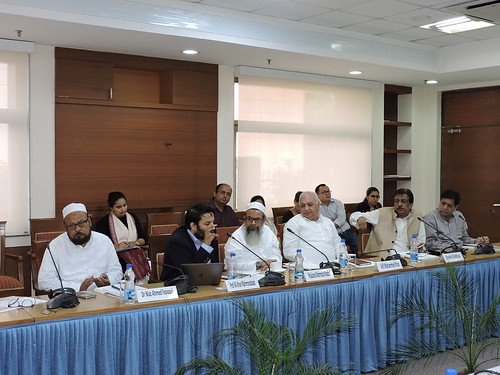 preaches and practises the same bestial mind-set, unless the fundamental motivators which propel this phenomenon are investigated, and eventually defeated.
preaches and practises the same bestial mind-set, unless the fundamental motivators which propel this phenomenon are investigated, and eventually defeated.
Violent extremism is, unfortunately, a reality that cannot be ignored. It is finding more adherents around the world including in our continent. Compared to the western world where with relatively small Muslim populations, a relatively higher proportion of individuals are suspected to have joined terror groups like Daesh, in India, only an infinitesimally small number of individuals have so far been successfully recruited into such terror groups. Yet, these are trends which deserve more than a thought.
To discuss these issues, and to examine ways to deal with the spread of such ideologies in India, VIF in association with Policy Perspective 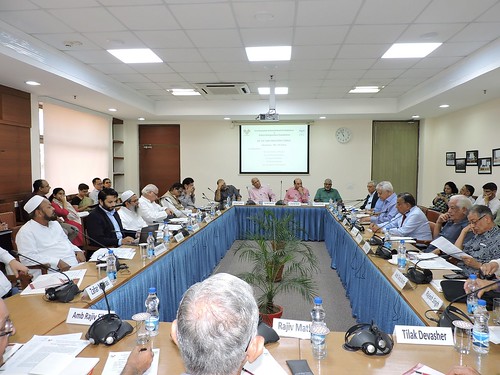 Foundation (PPF) organized two seminars titled ‘ISIS PROOFING INDIA’, the first one on the 16th of September, and followed by the second round on 8th of December, 2016. Distinguished scholars and community leaders like Maulana Mahmood Madani, Niaz Ahmad Farooqui, Hamidullah Bhat, Arif Mohammad Khan, Shahid Siddiqui, Prof. Ali Khan Mahmudabad, Haji Syed Salman Chishty, Sultan Shahin, and Adil Rasheed, to name a few, shared their thoughts and perceptions. The key questions before the distinguished panellists and participants included: the motivating factors which drive youth towards extreme radicalism, assessing the possibilities of creating ‘new narratives’ to counter the process of radicalization, the role of Islamic scholars, institutions, think tanks and the social media in addressing these concerns and the role and desirability of governments at the national and federal levels in promoting these agendas.
Foundation (PPF) organized two seminars titled ‘ISIS PROOFING INDIA’, the first one on the 16th of September, and followed by the second round on 8th of December, 2016. Distinguished scholars and community leaders like Maulana Mahmood Madani, Niaz Ahmad Farooqui, Hamidullah Bhat, Arif Mohammad Khan, Shahid Siddiqui, Prof. Ali Khan Mahmudabad, Haji Syed Salman Chishty, Sultan Shahin, and Adil Rasheed, to name a few, shared their thoughts and perceptions. The key questions before the distinguished panellists and participants included: the motivating factors which drive youth towards extreme radicalism, assessing the possibilities of creating ‘new narratives’ to counter the process of radicalization, the role of Islamic scholars, institutions, think tanks and the social media in addressing these concerns and the role and desirability of governments at the national and federal levels in promoting these agendas.
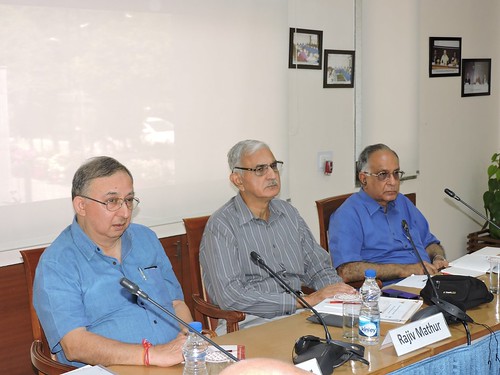 Some of the important suggestions that emerged from the deliberations were: (a) ‘radicalization’, in a dynamic and heterogeneous geopolitical context, needed parsing; (b) incidents are merely the symptoms, and not the disease;, (c) lopping off the branches, but nurturing the roots will not work; (d) ideological underpinnings which sustain radicalization need to be re-evaluated; (e) ‘fire-fighting’ measures are not adequate response to the challenge;, (f) multi-pronged approach needs to be evolved to address the phenomenon; (g) crucial role was to be played by families, scholars, preachers, mosques, Ulemas, social and political leaders, main stream and social media; an, (h) governments can and must play its part in this stupendous task. Scholars emphasized upon the modus operandi of Daesh as not simply being a tactic of war, but a psychological-operation which thrived in the ideological realm of violent nihilism, fostered by a misappropriation of baser human emotions.
Some of the important suggestions that emerged from the deliberations were: (a) ‘radicalization’, in a dynamic and heterogeneous geopolitical context, needed parsing; (b) incidents are merely the symptoms, and not the disease;, (c) lopping off the branches, but nurturing the roots will not work; (d) ideological underpinnings which sustain radicalization need to be re-evaluated; (e) ‘fire-fighting’ measures are not adequate response to the challenge;, (f) multi-pronged approach needs to be evolved to address the phenomenon; (g) crucial role was to be played by families, scholars, preachers, mosques, Ulemas, social and political leaders, main stream and social media; an, (h) governments can and must play its part in this stupendous task. Scholars emphasized upon the modus operandi of Daesh as not simply being a tactic of war, but a psychological-operation which thrived in the ideological realm of violent nihilism, fostered by a misappropriation of baser human emotions.
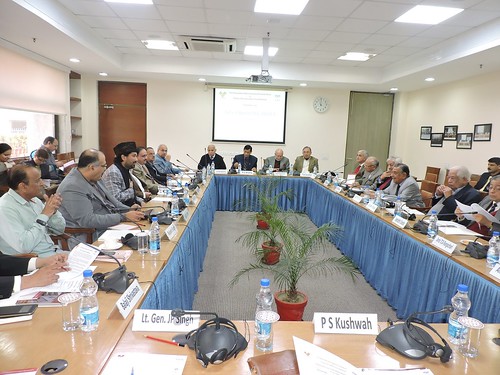 While highlighting the impact of the misuse of social media, the participants stressed the need for an effectively designed and disseminated tool to propagate counter-narratives to defeat the hate, phobia, exclusion and violence. Speakers cautioned against the perceived ill-treatment of the Muslim community from Indonesia to Morocco to Amsterdam as a major driver of radicalism. The distinguished gathering upheld the traditions of ‘ijtihad’ and their significance towards the creation of social jurisprudential norms which are truly accommodative, wholly tolerant and compassionate. To counter extremist interpretations, some scholars emphasised upon the revival of India’s Sufi traditions, appreciated for their encompassing and all-embracing values.
While highlighting the impact of the misuse of social media, the participants stressed the need for an effectively designed and disseminated tool to propagate counter-narratives to defeat the hate, phobia, exclusion and violence. Speakers cautioned against the perceived ill-treatment of the Muslim community from Indonesia to Morocco to Amsterdam as a major driver of radicalism. The distinguished gathering upheld the traditions of ‘ijtihad’ and their significance towards the creation of social jurisprudential norms which are truly accommodative, wholly tolerant and compassionate. To counter extremist interpretations, some scholars emphasised upon the revival of India’s Sufi traditions, appreciated for their encompassing and all-embracing values.
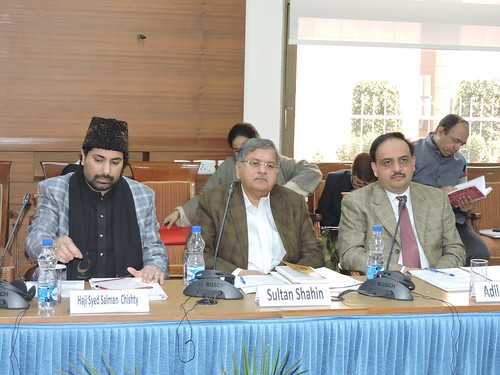 With regards to suggestions, it was highlighted that reform needs to be the result of an in-group process of churning, sustained by the will and motivation of those who seek to establish the supremacy of reason, dialogue and adaptability to change. The interpretability of theological texts must be re-suited to align with dynamic contemporary realities, such that rigidity gives way fluidity of thought and practice. The importance of non-kinetic approaches to challenge this broadly ideological threat which is driven by techniques described by some as a prototype of ‘fourth-generational warfare’ must be acknowledged.
With regards to suggestions, it was highlighted that reform needs to be the result of an in-group process of churning, sustained by the will and motivation of those who seek to establish the supremacy of reason, dialogue and adaptability to change. The interpretability of theological texts must be re-suited to align with dynamic contemporary realities, such that rigidity gives way fluidity of thought and practice. The importance of non-kinetic approaches to challenge this broadly ideological threat which is driven by techniques described by some as a prototype of ‘fourth-generational warfare’ must be acknowledged.
Essentially, it was reiterated that social, political, cultural, and religious forces must aggregate on a platform common in its vision and ends, to stand guard against a challenge which affects all equally, and must be taken on in the spirit of collectiveness.
Links:
[1] https://www.vifindia.org/event/report/2016/december/26/round-table-discussion-on-isis-proofing-india
[2] http://www.facebook.com/sharer.php?title=Round Table Discussion on ISIS Proofing India (I & II)&desc=&images=https://www.vifindia.org/sites/default/files/images_3_0.jpg&u=https://www.vifindia.org/event/report/2016/december/26/round-table-discussion-on-isis-proofing-india
[3] http://twitter.com/share?text=Round Table Discussion on ISIS Proofing India (I & II)&url=https://www.vifindia.org/event/report/2016/december/26/round-table-discussion-on-isis-proofing-india&via=Azure Power
[4] whatsapp://send?text=https://www.vifindia.org/event/report/2016/december/26/round-table-discussion-on-isis-proofing-india